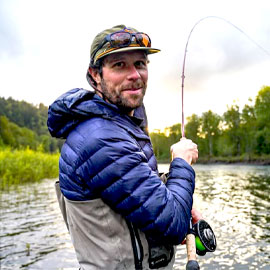From his very first steelhead, Wild Salmon Center’s new Oregon Senior Wild Fish Manager was hooked on salmon conservation.
Kirk Blaine had already lived several lives before Southern Oregon. Born in Wyoming, he farmed sugar beets in Montana, thinned forests in Colorado, and worked as a fly fishing guide on rivers like the Roaring Fork and upper Colorado. He served on a Forest Service hazard crew, built custom furniture, and even installed HVAC systems.
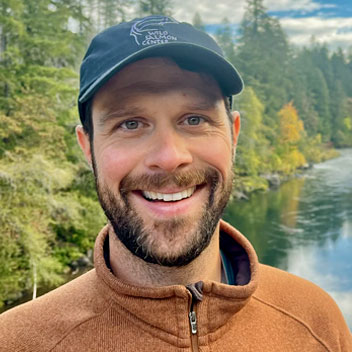
But in 2018, driving Oregon Route 138 to Roseburg for his wife’s new job, Blaine couldn’t take his eyes off the river they were passing. The North Umpqua beckoned in a way that Blaine couldn’t shake. Soon, he and his wife were spending every weekend on the river: fishing, trail running, hunting, rafting.
“The North Umpqua is one of the most beautiful places I’ve ever experienced,” Blaine recalls. The river beckoned, but it wasn’t—yet—his life’s calling. Not until he hooked his first steelhead.
“The North Umpqua is a very difficult river to fish,” Blaine says. “I’d been fishing for 30 straight days. And then I caught one—it jumped twice and came unbuttoned. And it grabbed at my heartstrings—this urge to want to protect it.”
Blaine had heard that the river’s steelhead runs were in trouble; a fraction of their historic abundance. Some folks he met said they no longer fished the North Umpqua, out of concern for its wild runs.
“I’d lived my life just having fun,” he says. “But I came to Oregon with a feeling that it was time for me to give back, and make sure that the places I love are here for my children and others.”
“I’d lived my life just having fun. I came to Oregon with a feeling that it was time for me to give back, and make sure that the places I love are here for my children and others.”
WSC Oregon Senior Wild Fish Manager Kirk Blaine
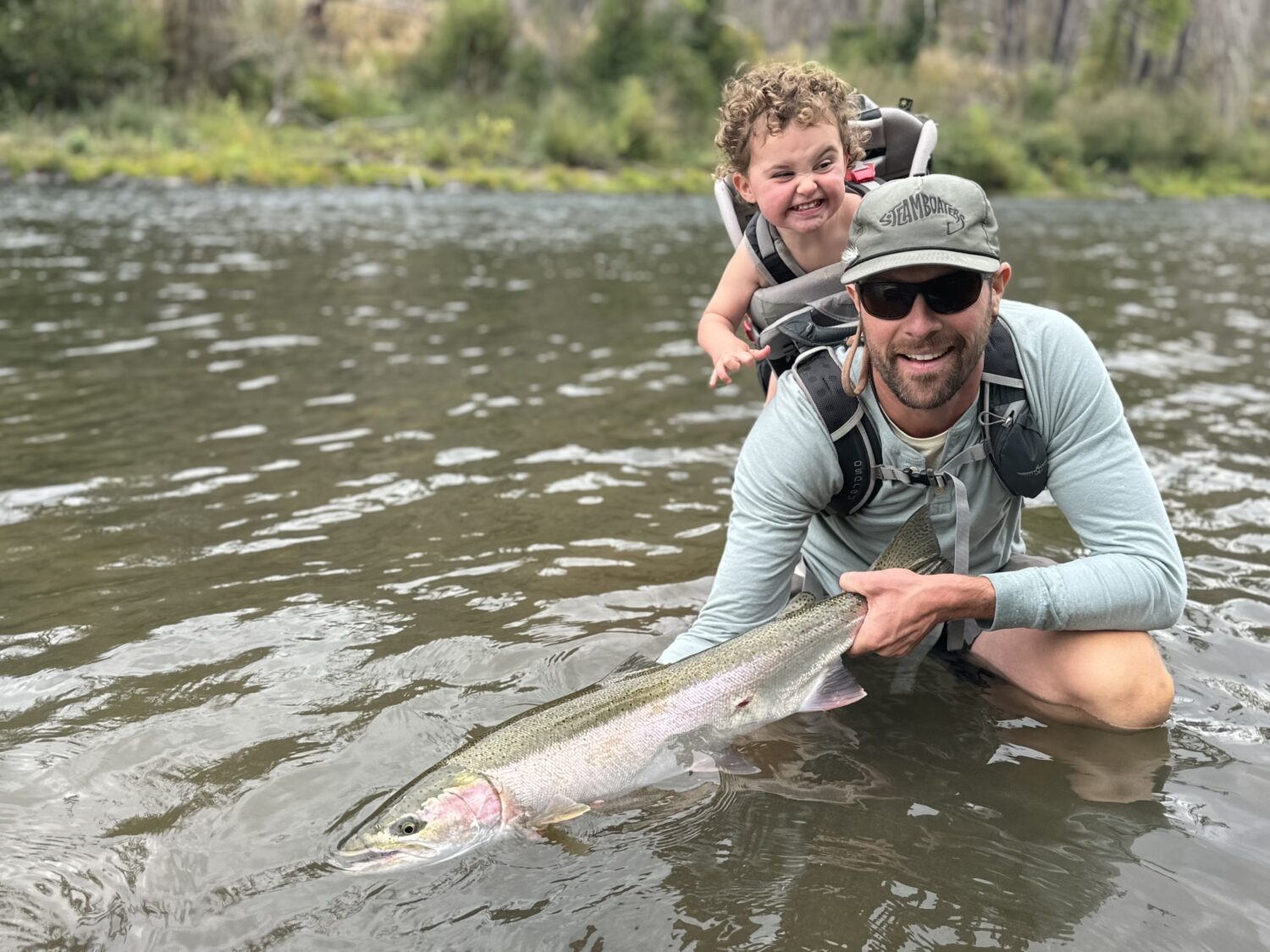
The North Umpqua’s wild fish needed help, Blaine thought. Soon, he took a grassroots advocacy job with the Native Fish Society, where he organized campaigns including an ongoing battle against the privately-owned, 135-year-old Winchester Dam—an impassable fish barrier on the North Umpqua that blocks salmon and trout from reaching 160 miles of prime upstream habitat.
In the autumn of 2024, Blaine took his advocacy work to the next level. As Wild Salmon Center’s first-ever Senior Wild Fish Manager for Oregon, he’s now working to advance policies that protect wild fish in rivers across the state.
Below, we talk with Blaine about how his new role can make a difference for Oregon wild fish, and why not even fire could change his chosen career path.
Wild Salmon Center: In 2018, you fell in love with the North Umpqua and its wild fish runs. But why go the extra step and seek out a career in wild fish conservation?
Kirk Blaine: Well, ever since my first steelhead, I started observing these fish more closely. I could see that there were just so many points of concern. I knew that climate change was having an impact on them. I could see that invasive species like smallmouth bass were encroaching on them. Winchester Dam is still delaying fish in their migration. And there are general watershed issues, like road building and water diversion.
But I can point to another transformative moment on the river that really motivated me to dive into this work. That’s the Archie Creek Fire in 2020. I was actually up on the North Umpqua Trail running when the fire started. It was a life-changing event. My family and I, we considered moving after that. But we also knew that this was a time to double down, and really give back.
“I can point to another transformative moment on the river that really motivated me to dive into this work. That’s the Archie Creek Fire in 2020. It was a life-changing event.”
WSC Oregon Senior Wild Fish Manager Kirk Blaine
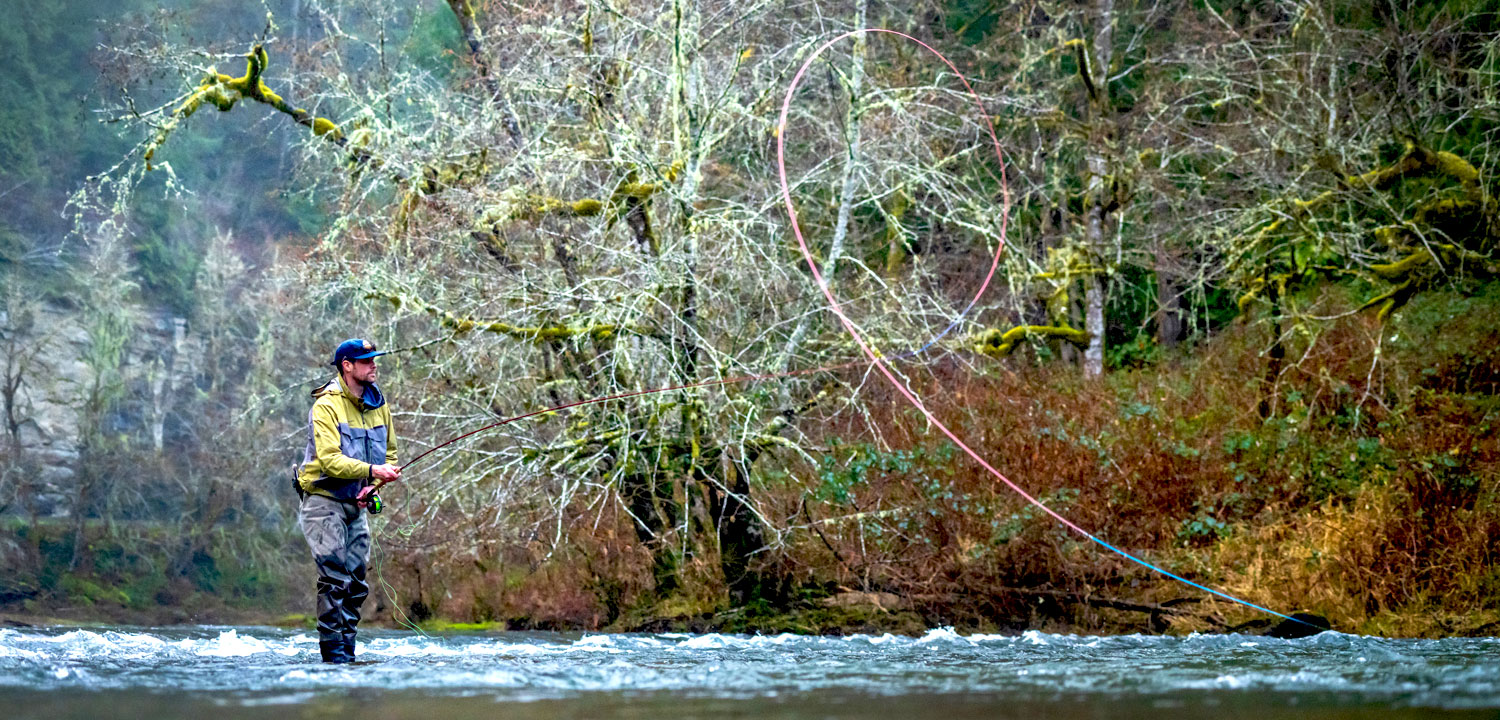
WSC: What is it that you thought you could do?
Blaine: It’s true that in conservation, there’s a lot that feels outside our control. For salmon and steelhead on rivers like the North Umpqua, it’s really death by a thousand cuts. But there are things we can control. We can improve their habitat. We can improve and even remove dams like Winchester Dam. And we can reform the way we operate hatcheries.
Just in my time in Southern Oregon, I’ve felt great hope from seeing how many people are engaged in this work. I’ve felt that hope at work in places like my home river. But now, at Wild Salmon Center, I’m getting to see the massive effort that’s underway to help these fish. It’s amazing.
“In conservation, there’s a lot that feels outside our control. But there are things we can control. We can improve their habitat. We can improve and even remove dams. And we can reform the way we operate hatcheries.”
WSC Oregon Senior Wild Fish Manager Kirk Blaine
WSC: How do you describe your new job to friends and relatives?
Blaine: I say that I focus on finding ways that fisheries managers can better recover and protect wild fish. That includes through policies both for river and marine fisheries, and through tools like escapement standards and long-range management plans.
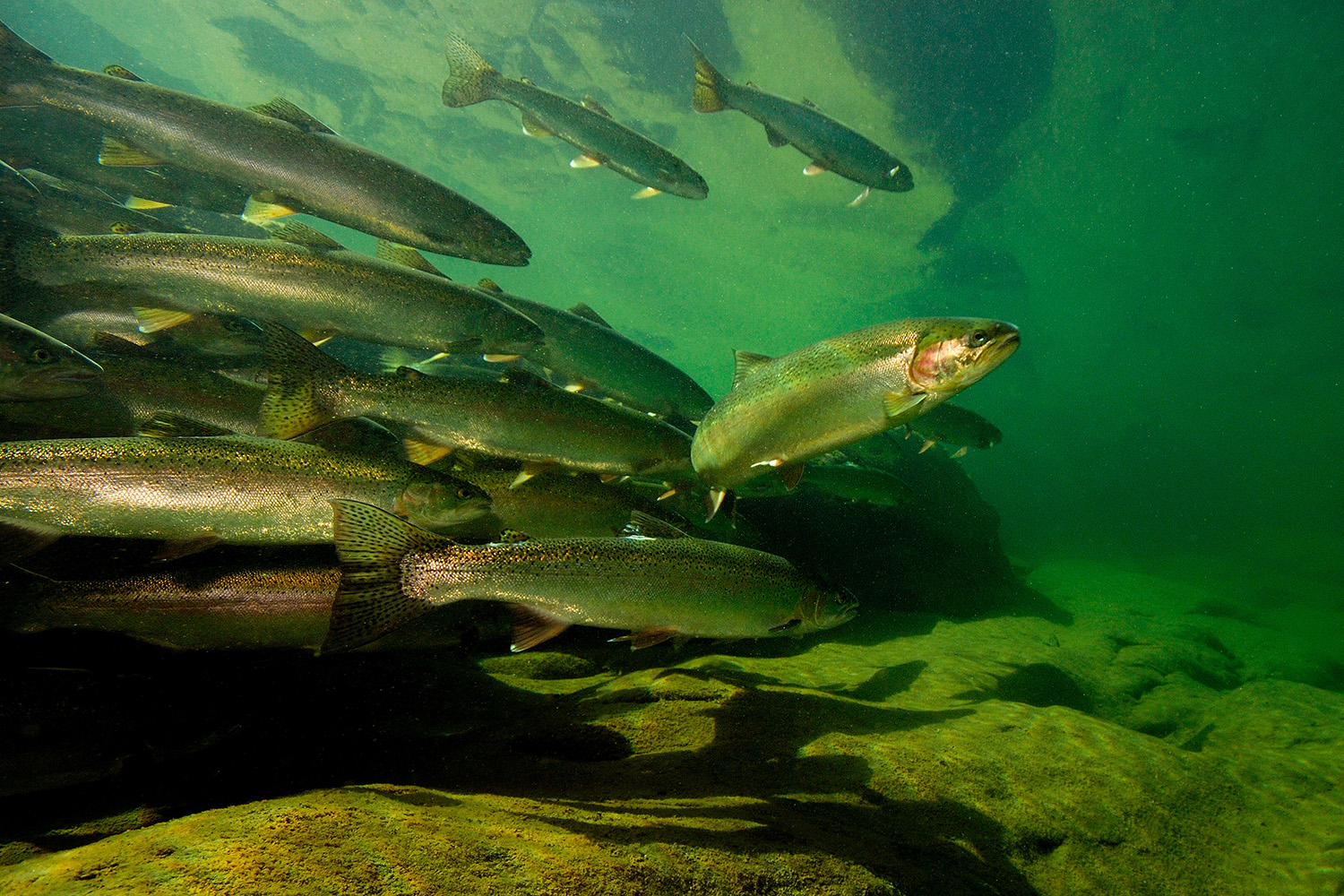
I also engage with the hatchery system in Oregon. Wild Salmon Center understands that some of these operations, like conservation hatcheries, are playing necessary roles. An example would be in the upper Klamath, where dam removal means that salmon reintroduction is about to happen after the total absence of these populations for many, many decades. But we have to carefully balance these efforts, so that our wild salmon and steelhead aren’t affected—because we know that hatcheries cause a loss of productivity and harm long-term sustainability for these wild runs. So part of my job is working to make sure that policymakers and fisheries managers understand and balance these risks.
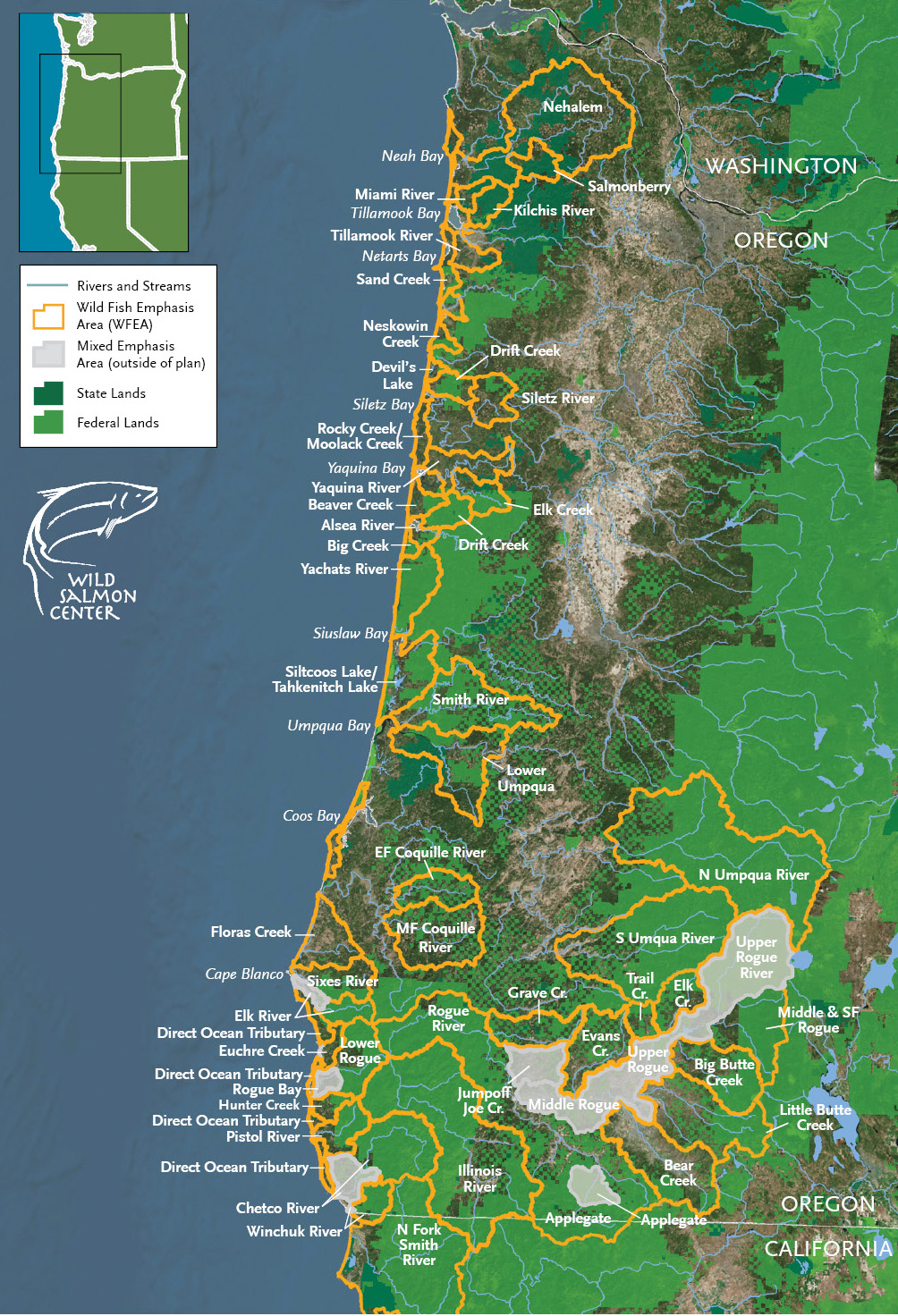
WSC: In Washington State, your Wild Salmon Center counterpart is James Losee, another recent addition to our wild fish team. Where do your roles merge and diverge?
Blaine: There is a lot of crossover between James and I. It’s been great to start at about the same time, bounce ideas off each other, and learn from each other. We share work on more regional issues—initiatives that reach beyond Oregon and Washington, like the Pacific Salmon Treaty. But there are differences between the two states.
For example, in Oregon, we really have suffered more from our long history of massive logging, relative to our neighboring states. The Private Forest Accord will help our forests and wild fish recover from some of that damage.
Another difference is that Oregon’s hatchery system to date has had a smaller footprint than in Washington. In the 1990s, when Oregon Coast Coho salmon were listed as threatened under the Endangered Species Act, that did help bring more focus to wild fish in Oregon. But we have work to do here, still, to accept that hatchery fish really do pose a risk.
WSC: Would you say you feel hopeful for wild salmon and steelhead?
Blaine: It’s true that current federal changes are drastically changing the landscape of the work we do. We need to do everything we can to protect existing policies, from local conservation management plans to the Endangered Species Act. But I do have hope.
When we have trying times in conservation, we need hope more than ever. It keeps us coming to the table. It keeps us moving forward.
At Native Fish Society, and now at Wild Salmon Center, I keep saying I have the best job in the world. I wake up every day feeling excited to get to work. Because I get to be a part of a major effort to protect wild fish. I get to focus on the beautiful places that I love. And hopefully, down the road, I’ll get to see the change that happens as a result. I’m well aware that not many people can say that.
“Current federal changes are drastically changing the landscape of the work we do. When we have trying times in conservation, we need hope more than ever. It keeps us coming to the table. It keeps us moving forward.”
WSC Oregon Senior Wild Fish Manager Kirk Blaine
Hero Image
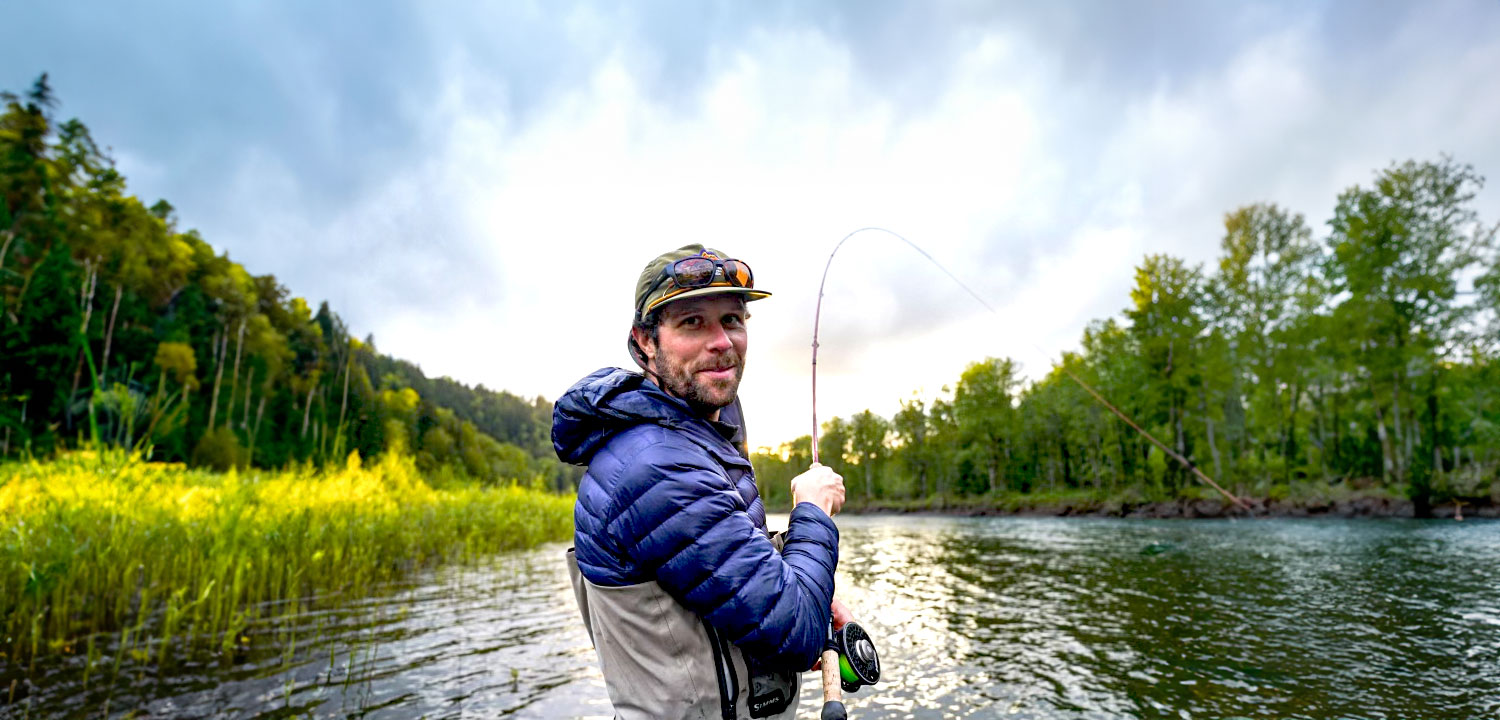
Hero Image (Home Page Section)
